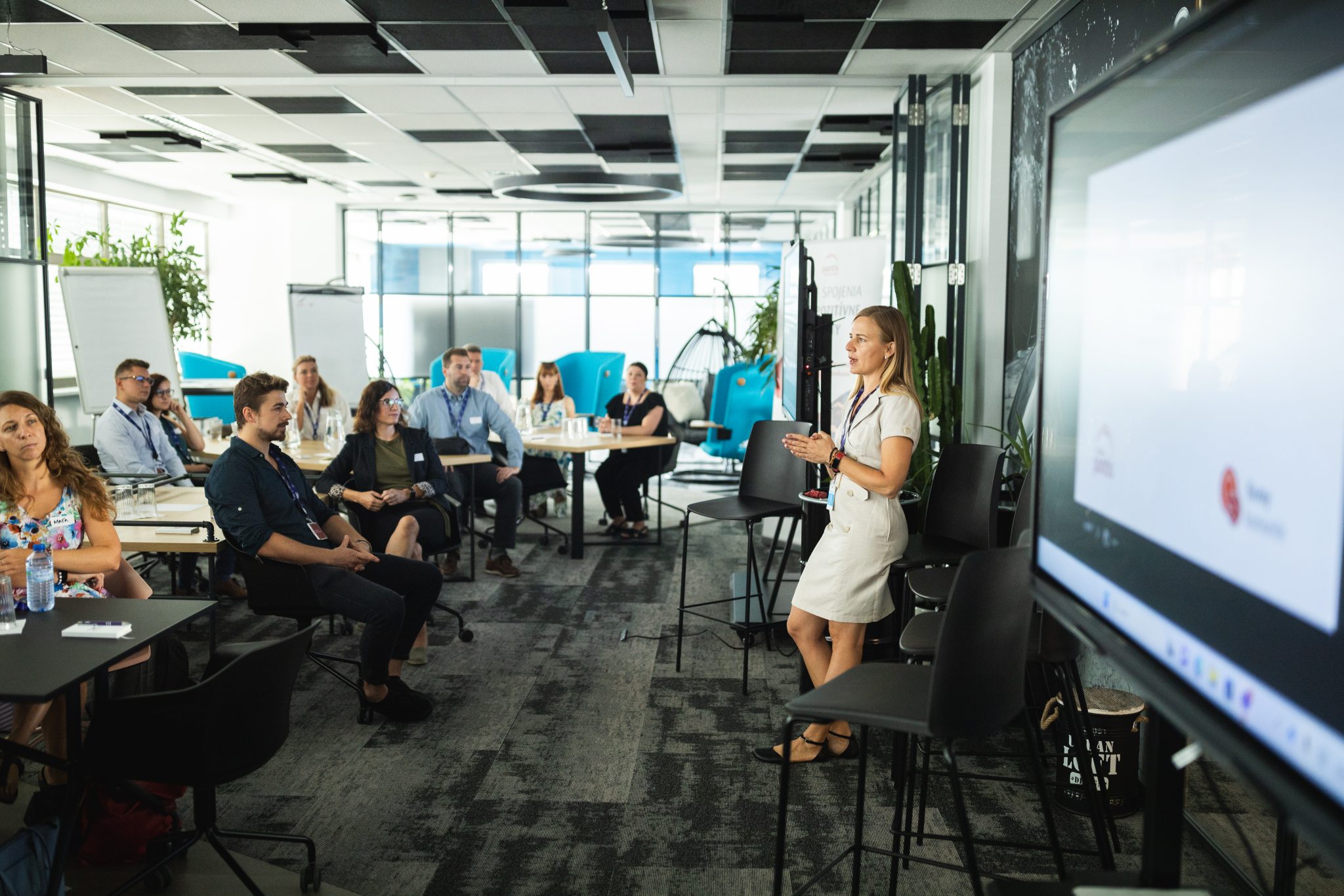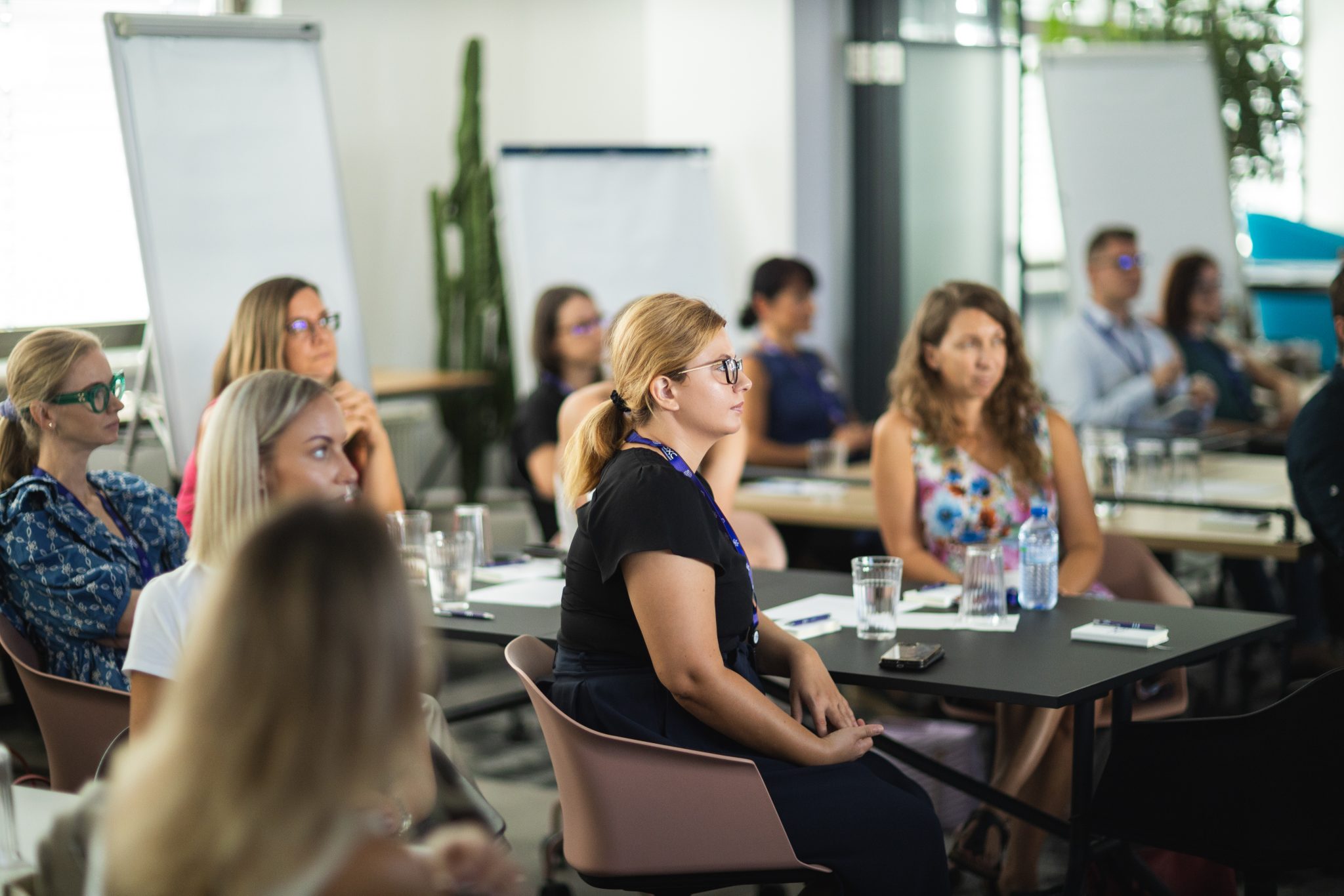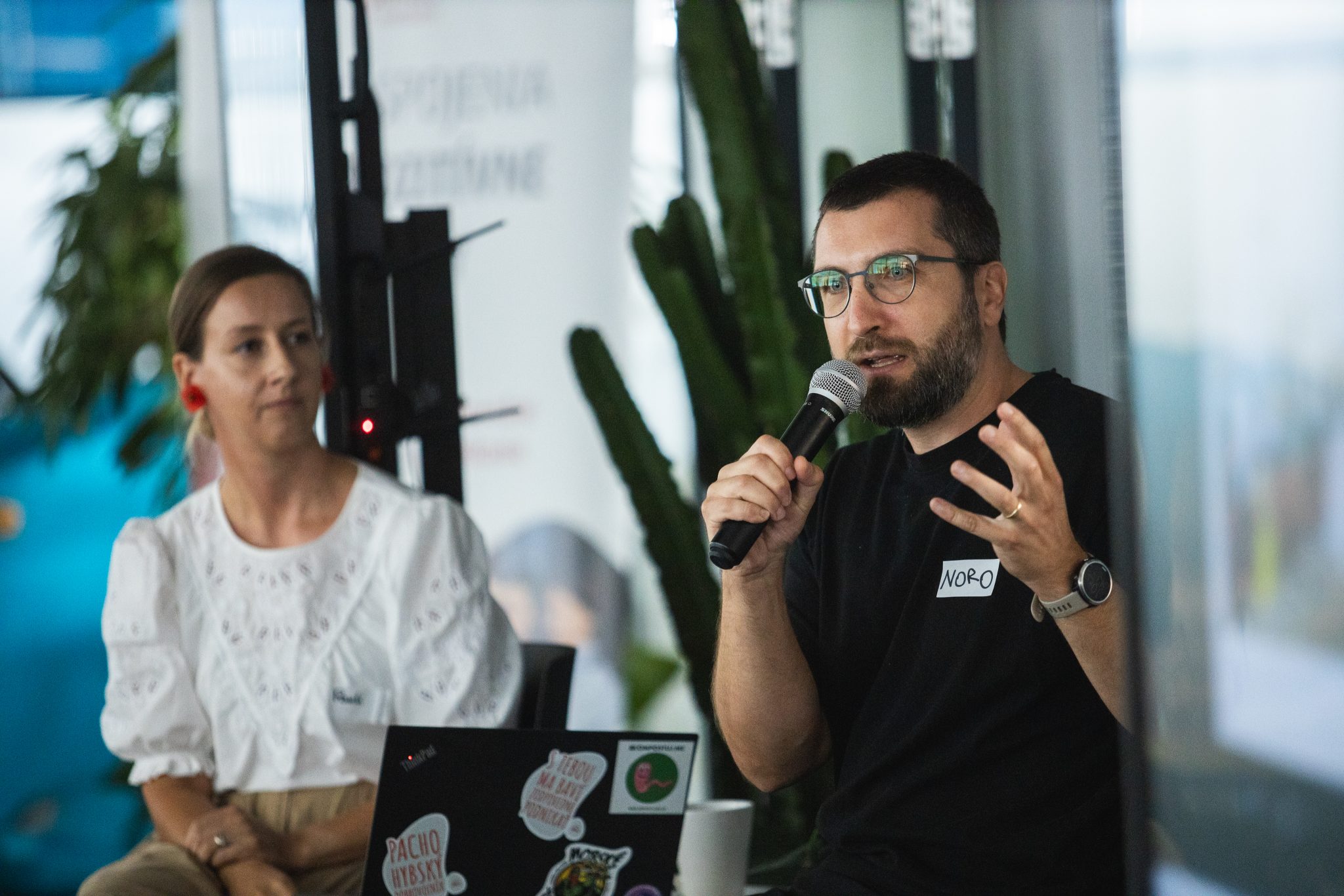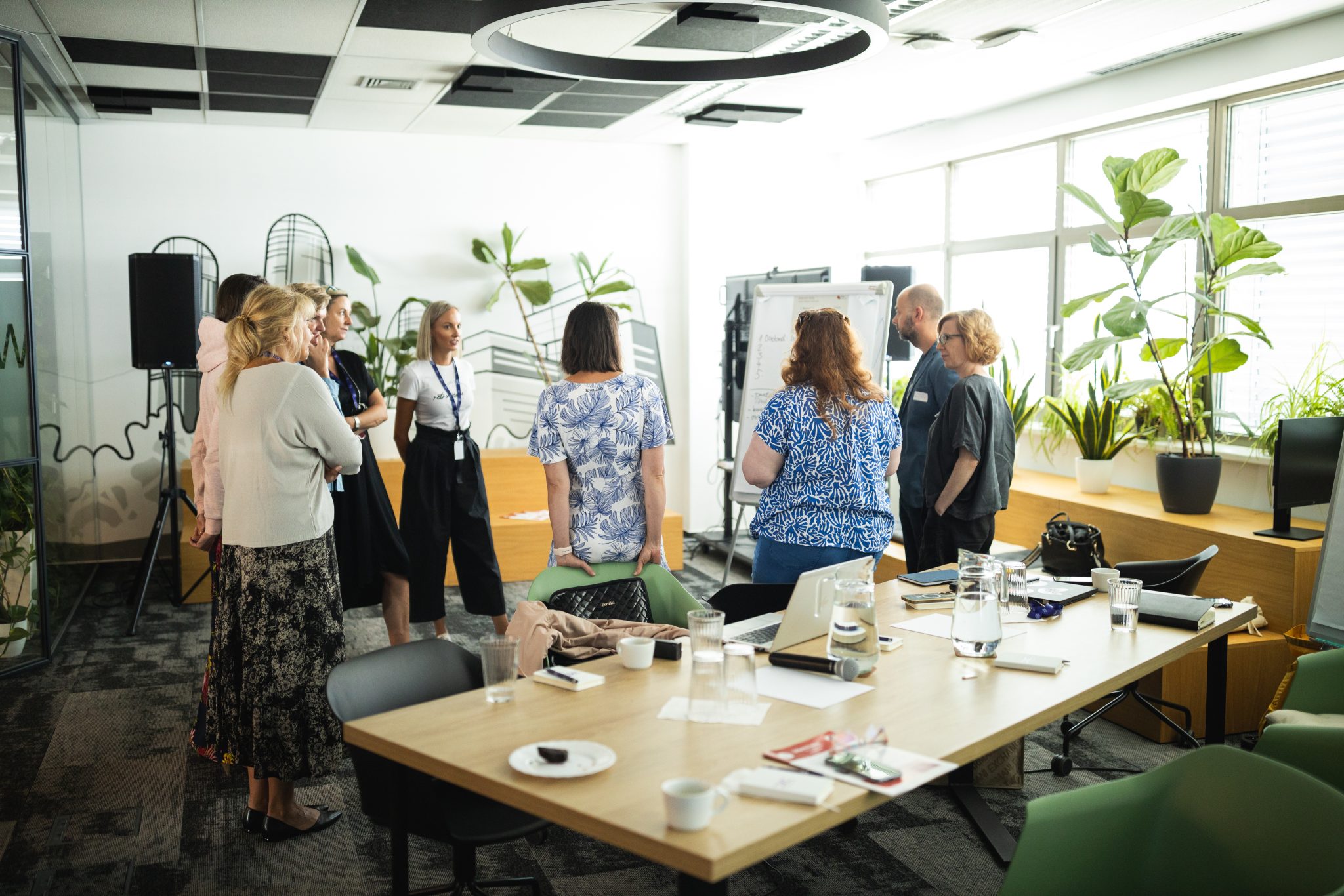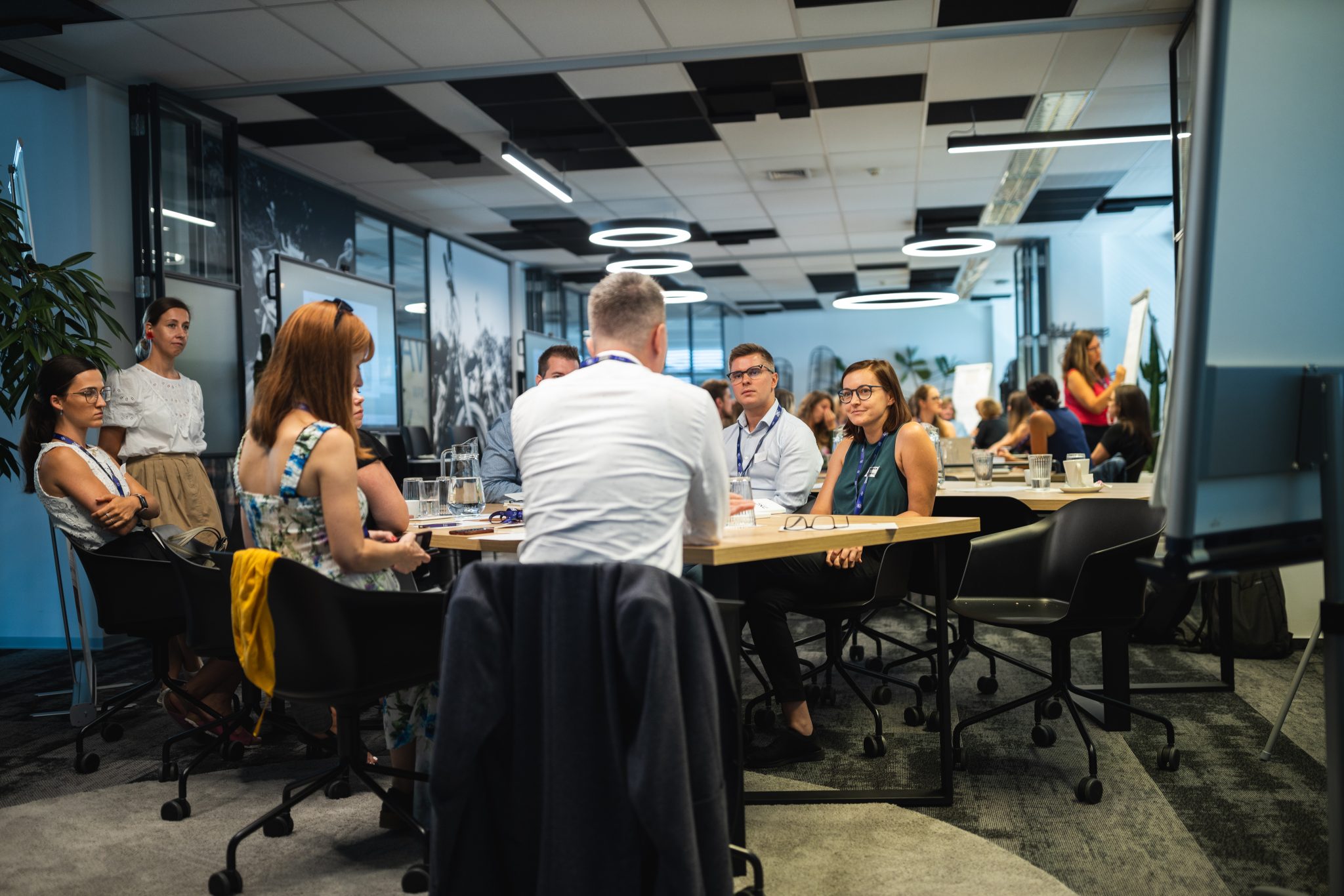The companies agree that expert volunteering is beneficial for both parties
More and more companies are contemplating how to help organisations not only with hands but also with their minds. The companies are starting to connect manual volunteer activities with professional, so-called expert volunteering. Members of the "Companies to the Community" working group met on the 13th of September in the premises of DXC Technology Slovakia to exchange experience on how to use corporate know-how and expertise to assist non-profit organisations.
What is expert volunteering?
The term refers to activities where a company provides its expertise to non-governmental organisations for free and at business quality. In practice, this means that if its focus is, for example, in the field of IT, it can provide the organisation with consultations, mentoring, setting up IT processes, or a workshop in this area. If the company’s operations also include marketing, HR, or a legal department, the company can provide expertise in these areas as well.
However, we do not consider it expert volunteering if, for example, a person from the company is involved in photography in their free time and would like to shoot a charitable calendar for the organisation pro bono.
Experiences of companies
Part of the meeting also included a discussion with representatives from companies that are already involved in expert volunteering. The motivation of companies like Accace, DXC, GlobalLogic, and Tatra Bank for these activities is similar: to help not only with hands during the Our Town event, but to provide more of their know-how exactly where organisations need it the most.
At DXC Technology Slovakia, they began to further develop expert volunteering during the pandemic. They utilised their IT knowledge to start assisting teachers and pupils with online instruction during the time of remote learning. Later, they started to engage in experiential IT teaching directly within the company. They set up four pillars of education for primary schools – understanding the technical components of a computer, cybersecurity, 3D printing, and the use of the computer game Minecraft in teaching. For secondary school students, they have programmes where they can gain knowledge about the SAP system or about how APIs work. At DXC, more than thirty people are involved in expert volunteering. As part of their working hours, they can set aside 4-8 hours per month for these activities. “Volunteering is primarily an experience associated with positive emotion for me. I love doing things with passion. It’s great when, at the end of the lesson, children ask: ‘Could I work for the same company as you?’ Zuzana Spišáková from DXC said at the meeting.
A significant benefit for the development of expert volunteering is when the initiative comes from management. Just like in the company Accace, which deals with consulting in the fields of accounting, taxes, law, and HR. “In his free time, our boss began to offer advisory services for startups. He didn’t do it for PR, but because he saw it as important and beneficial for the community, and moreover, he believed that his activity might inspire other companies,” Petra Konáriková mentioned in the discussion. Gradually, more people started joining this effort. Today, they collaborate with schools in the field of financial literacy, provide mentoring to organisations on marketing topics, and offer advice to startups. Volunteers at Accace can spend as much time on expert assistance as their work projects allow; they are not restricted in these activities at all.
A feeling of fulfillment and better intergenerational cooperation
At Tatra Bank, they surveyed their employees to find out in which areas they would be willing to help. The first attempt to launch expert volunteering did not go as planned – potential volunteers had too many options without a specific task and deadline. Today, Tatra Bank has a partner – DofE (The Duke of Edinburgh’s Award) and, through expert volunteering, it focuses on mentoring secondary school students. They teach them, for example, how to set a plan, work on it, and achieve the set goal. “It’s great to be in contact with the younger generation. Sometimes, other people’s children will tell volunteers more than they learn from their own,” said Zuzana Ondrová from Tatra Bank at the meeting, adding: “In this way, volunteering also helps us with intergenerational cooperation with younger colleagues.”
“I didn’t even know it was called that, and I’ve been doing it for over 10 years…” Tibor Radačovský from GlobalLogic began his answer to the question about expert volunteering. He was the driving force in the company when he launched a project to support education in schools in eastern Slovakia. He focused on secondary schools, where he works with teachers in a way that makes teaching attractive to students. The company also collaborates with universities. “It’s an immense feeling of satisfaction when a boy, who used to sit in the corner of the room staring at his phone, suddenly starts thinking about where that derivative could be applied and wants to go to a university,” Radačovský described his experience. For him, keeping talented people in the region is a personal priority.
Benefits of expert volunteering
All the discussion participants agreed that expert volunteering works when:
- motivation and example come from management,
- people in the company have the space and opportunities to offer their expertise to help organisations,
- stories of volunteers and their contributions to organisations are communicated,
- there’s an ambassador who oversees the volunteering activities in the company.
Participation of corporate volunteers in expert activities increases engagement and offers individuals an opportunity for self-realisation. Moreover, they start to feel that their help and work are truly essential for someone. They become grateful and proud to work for an employer who cares about societal issues, which gives them more energy for their job tasks. Undoubtedly, the company also becomes more attractive to potential new interested parties or clients.
Perspective from the other side
Norbert Maur, the senior programme manager of the Pontis Foundation, who leads the Impact Lab, offered a perspective on expert volunteering from the other side, that is, from the perspective of non-profit organisations. (The Impact Lab is a unique educational programme that helps organisations grow and develop.)
When working with non-profits, companies should try to measure their impact, for example, how the expert assistance of employees improves their performance or deepens their expertise. “It’s beneficial to motivate the non-profit itself to measure the impact and to have information on how your expert help has multiplied the impact of the organisation’s activities,” he said.
Non-profits mainly need help with fundraising and communication
Based on our internal survey among organisations (62 responses), we found that the majority of organisations are familiar with the concept of expert volunteering. Those that have experience with it consider it as very beneficial.
Organisations expressed interest in collaborating with expert volunteers, but their most common concerns and fears are that:
- they will not find the right partner to help them,
- they will not have sufficient internal capacities and time to focus on the topic,
- the enthusiasm of volunteers will quickly fade, and the project will remain unfinished,
- volunteers will not deliver work of adequate quality,
- they will have to invest a lot of time in training, which they could otherwise use to address the problem on their own,
- how to protect the sensitive data of the organisation or clients with whom the volunteers would come into contact.
We also investigated the areas of expert volunteering that non-profit organisations are interested in. They are primarily interested in resource acquisition and fundraising, assistance with marketing, promotion, and managing social networks. They would also welcome help in areas such as education and mentoring in various topics – not only for their members, but also for their clients.
Are you interested in more information on how to start with expert volunteering or how to choose an organisation that needs help? Contact the senior programme manager of ‘Companies to the Community’, Dušana Lahová.



